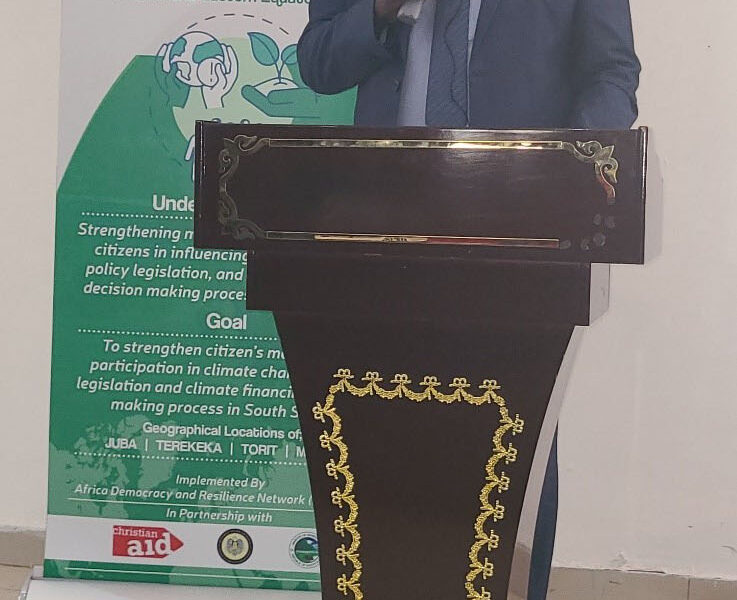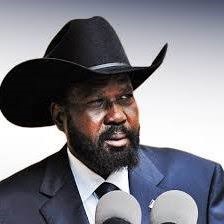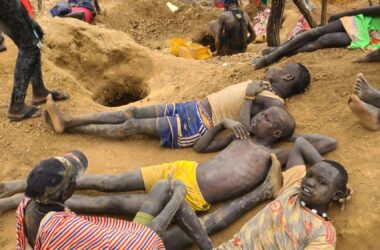Kei Emmanuel Duku
A nine-month project aimed at strengthening citizens’ capacity in climate policy, legislation, and financing advocacy has been launched in Central and Eastern Equatoria states.
The project to a tune of £73,500 will be implemented by African Democracy and Resilience Network in partnership with Christian Aid, targeting over 7,500 South Sudanese.
The project will be implemented in Terekeka and Juba County in Central Equatoria state and Torit and Magwi County in Eastern Equatorial State.
It will focus on community engagement, climate change vulnerability, disaster risk mitigation, and climate resilience, including environmental conservation.
Wani Stephen Alfred, Executive Director of the African Democracy and Resilience Network, emphasized the project’s focus on planting trees in four schools in the project areas.
Under the Greening School Campaign Project, environmental clubs will be formed, and each school will plant 1,000 trees.
Wani highlighted the need for climate change education, especially in light of recent school closures due to rising temperatures.
The project aims to create awareness among learners and strengthen teachers’ capacity to address climate change challenges.
“We aim to plant 4,000 trees by the end of the project in these four schools,” Alfred said. “They will be supported with seedlings, and our focus is on the next 5-10 years. We want to see our schools green, and we don’t want to see our children sent home again because of heat waves. They should be educated about their roles in investing in climate.”
Alfred also noted the high rates of deforestation and flooding in Magwi County and Terekeka, respectively justifying their selection. The project will support the livelihoods of affected communities through Village Saving Loans (VSL).
Owar Mark, a member of the South Sudan National Youth Council, appreciated the Greening School project initiative and emphasized the need for a broader response to climate change-induced shocks.
Owar highlighted the prevalence of flooding in many areas of the country and called for stronger response mechanisms, including the formation of community mobilizers to help construct dykes.
Batali Oliver, Director General of the Directorate of Environmental Planning and Sustainability at the Ministry of Environment and Forestry, stated that 95% of the South Sudanese population depends on climate-sensitive sectors, making them highly vulnerable to climate change.
He emphasized the need for robust actions, including the enactment of necessary national policies to address the issue.
Batali reiterated the government’s commitment to implementing national policy frameworks such as the National Adaptation Plan of Action and the Paris Agreement.
He highlighted the importance of reviewing South Sudan’s National Determined Contribution to guide the country’s response to climate change.
“Climate change is a global threat, and we cannot address it in silence,” Batali said. “We are now using these policy frameworks to advocate for climate action both within and beyond South Sudan.”




